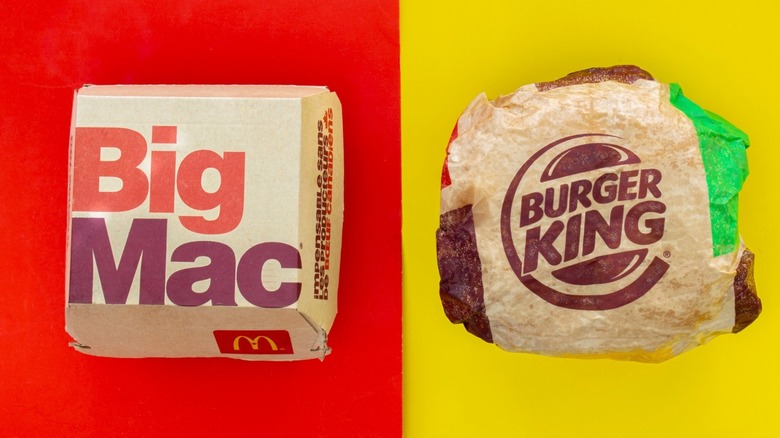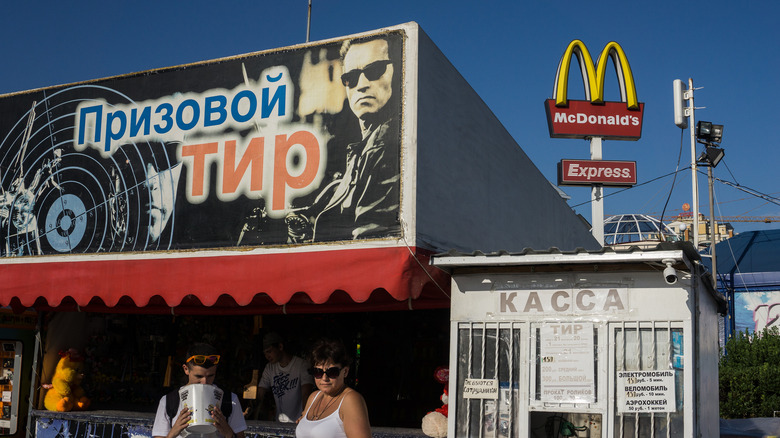How The War In Ukraine Could Affect American Fast Food Chains
The ongoing conflict between Russia and Ukraine is expected to have far-reaching consequences, and that includes for the food industry. Popular American chains such as McDonald's, Burger King, and Yum! Brands Inc. (which includes Pizza Hut, KFC, Taco Bell) have historically had successful overseas operations in both Russia and the Ukraine according to Business Insider. The magazine reports that the companies have thousands of restaurants in the affected areas, with Yum! brands describing Russia, Central and Eastern Europe as providing 8 percent total of "KFC system sales" for 2021 (via Yum! Brands).
Business Insider shares a statement released by Yum! in conjunction with their annual report warning of the possibility that "macroeconomic conditions, give rise to regional instability and result in heightened economic sanctions from the US and the international community in a manner that adversely affects us." In more common language, the brand refers to the idea that both sanctions and politics may close down restaurants in these areas, in addition to, of course, safety concerns. While these restaurants are largely considered American brands, these shutdowns could significantly affect overall profits of the international food organizations.
And this concern has precedent.
American brands may see impacts from overseas conflict
Business Insider reported on the shutdown of four McDonald's restaurants in Moscow in 2014 — closures that were cited as health codes by widely viewed as retaliation for Western sanctions regarding Ukrainian aggression. McDonald's shares went down 0.36 percent that same day. Earlier that same month, Russia had banned "...all meat, fish, dairy, fruit and vegetable imports from the United States, the European Union, Norway, Canada, and Australia for one year." Widespread changes in sales for the food and beverage industry is likely to have ripple effects to U.S. consumers as food sellers become squeezed on both supply and demand sides at once.
Rabobank predicts, via TIME magazine, that a war with Ukraine could increase wheat prices by 30% and corn prices by 20%. Speaking of the Russia-Ukraine conflict, Andrew Harig, a vice president of the Food Marketing Institute at the U.S. Department of Agriculture's annual Agriculture Outlook Forum, said, "It is going to drive inflation up. We just don't have a total understanding of how that process plays out."
So in short, expect those fast food burgers, tacos, and fries to start getting more expensive — just how expensive is yet to be seen.

